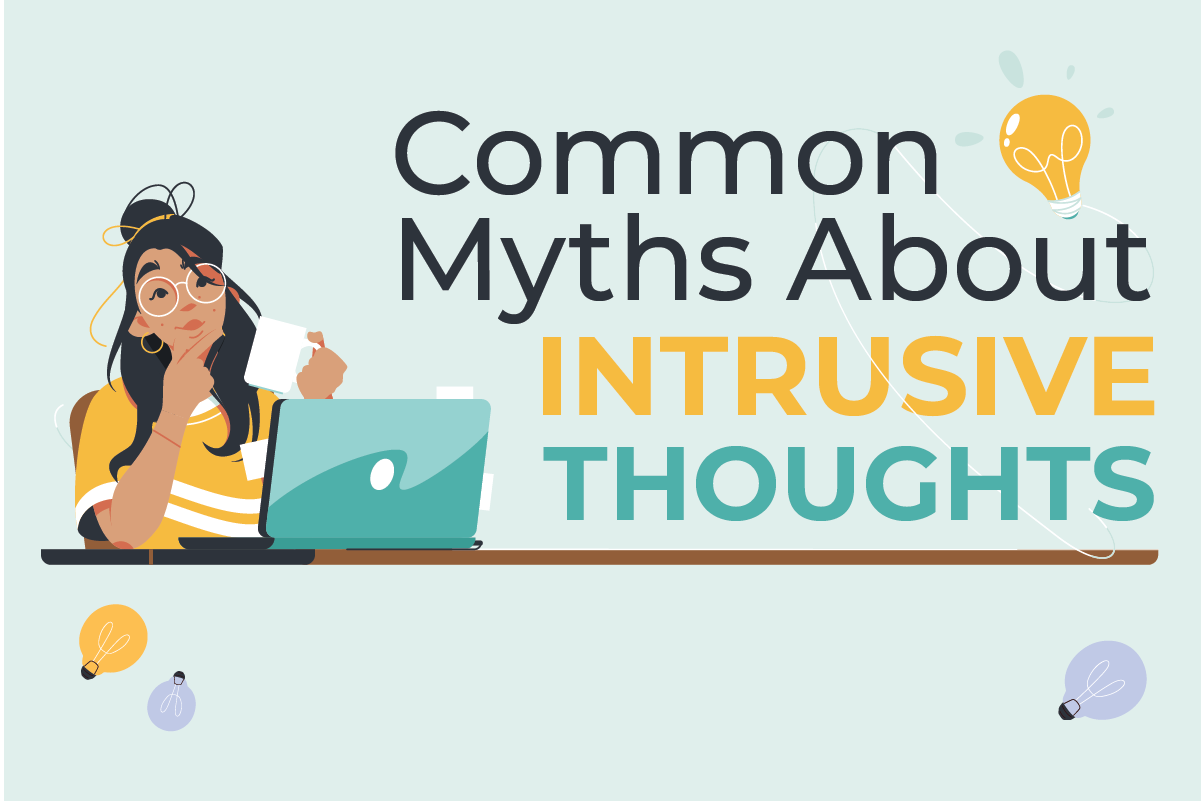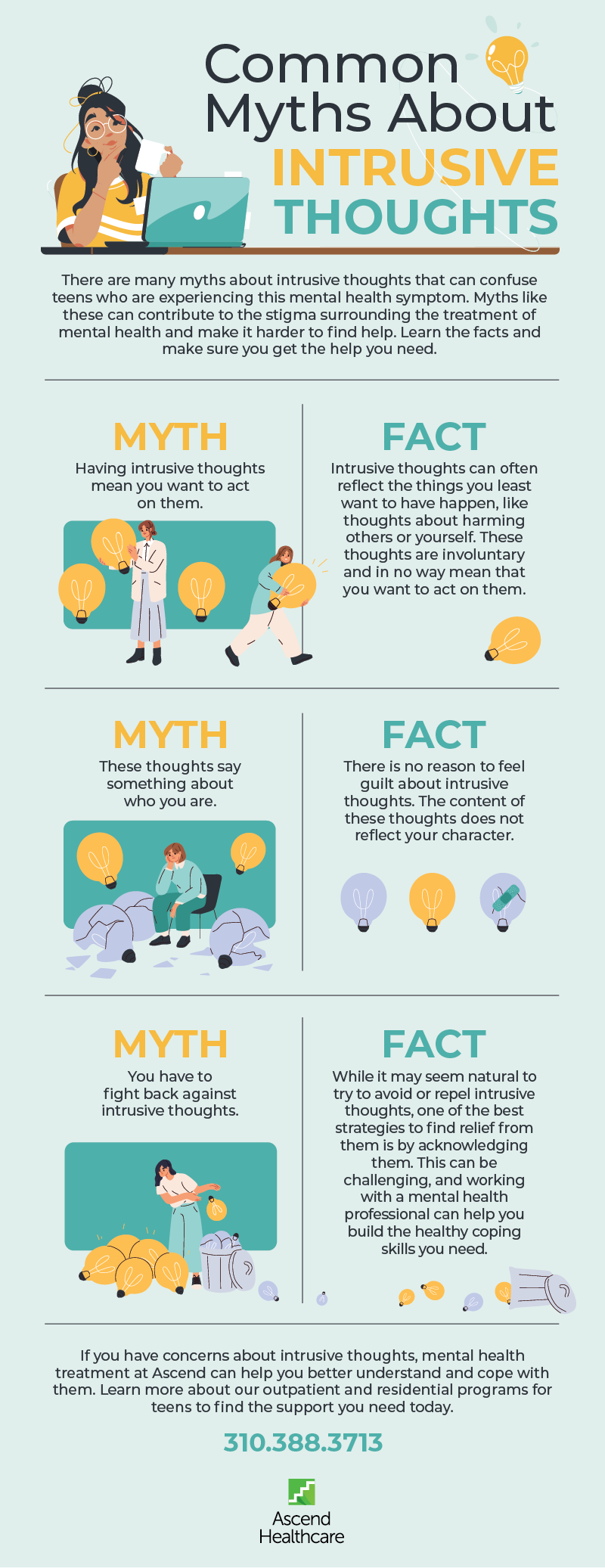Intrusive thoughts are a standard part of the human experience, but for teens, in particular, they can be especially unsettling. While intrusive thoughts are common in those who struggle with anxiety and obsessive-compulsive disorder (OCD), they can also occur in people without any mental health conditions. There are a number of myths about intrusive thoughts that can lead to misunderstandings and even shame for many, so it’s important to understand the truth about intrusive thoughts.
Learn more about what intrusive thoughts are and the myths that stigmatize them for the mental health community from the experts at Ascend.
What Are Intrusive Thoughts?
Intrusive thoughts are unwanted, involuntary thoughts or mental images that often pop into someone’s mind. Sometimes they’re harmless, but they can be distressing. These thoughts are usually related to worries and fears, such as fear of doing or saying something wrong or shameful.
Intrusive thoughts can include a wide range of topics, including worries about death or violence, being late for something important, feeling overwhelmed by your responsibilities, or even doubts about your sexuality. Intrusive thoughts can manifest as images, impulses, or even words.
Because intrusive thoughts are involuntary and can be related to worries, it’s easy to see why myths about intrusive thoughts persist. Understanding what intrusive thoughts are and why they happen can be a powerful tool to better manage them.
Top Myths About Intrusive Thoughts
1. Myth: Having intrusive thoughts mean you want to act on them.
The fact is that intrusive thoughts can often reflect the things you least want to have happen, like thoughts about harming others or yourself. These thoughts are involuntary and in no way mean that you want to act on them.
2. Myth: Bad thoughts mean that you’re a bad person.
There is no reason to feel guilt about intrusive thoughts. The content of these thoughts does not reflect your character. In fact, feeling guilty about negative or concerning thoughts shows the exact opposite – that you have an understanding of right and wrong.
3. Myth: You have to fight back against intrusive thoughts.
While it may seem natural to try to avoid or repel intrusive thoughts, one of the best strategies to find relief from them is by acknowledging them. This can be challenging, and working with a mental health professional can help you build the coping skills you need.
4. Myth: Intrusive thoughts are not normal.
It’s important to remember that everyone has random — and often strange — thoughts that come and go. It’s normal to experience intrusive thoughts from time to time, but when these thoughts become persistent or distressing, that’s when they become a problem.
Recognizing Intrusive Thoughts
Now that you know the top myths about intrusive thoughts, you can destigmatize them on your journey towards better mental health. If you’re worried that you or a loved one may need some support dealing with intrusive thoughts, consider these concerning symptoms, including:
- Difficulty concentrating
- Feeling like you can’t control your thoughts
- Significant distress due to the presence of intrusive thoughts
- Becoming preoccupied with the thoughts
Treatment for Intrusive Thoughts
If intrusive thoughts become persistent and begin to interfere with your daily life, it might be time to seek help. Treatment for intrusive thoughts can include cognitive-behavioral therapy (CBT) and even medication.
CBT is an evidence-based approach that helps participants identify negative patterns of thinking and behaviors. It then helps them replace those patterns with healthier, more adaptive ones. In CBT, people learn how to observe, criticize, and modify their thoughts to help them better understand the relationship between their thoughts, feelings, and behaviors.
If OCD is at the root of intrusive thoughts, a doctor may recommend medications such as selective serotonin reuptake inhibitors (SSRIs) to help manage symptoms. SSRIs are the most commonly prescribed medications for OCD, and they can help reduce the anxiety that often accompanies intrusive thoughts.
Debunk Myths About Intrusive Thoughts at Ascend
Ascend’s mental health treatment programs for teens can help teach teens about what intrusive thoughts are and debunk myths about intrusive thoughts. Through residential and outpatient care, adolescents can learn how to recognize intrusive thoughts, develop healthy coping skills, and manage their mental health.
At Ascend, we understand that intrusive thoughts can be extremely distressing, especially for teens. We provide a safe and supportive environment where adolescents can gain insight into their thoughts.
Contact us at 310.388.3713 or reach out to Ascend online to learn more.








